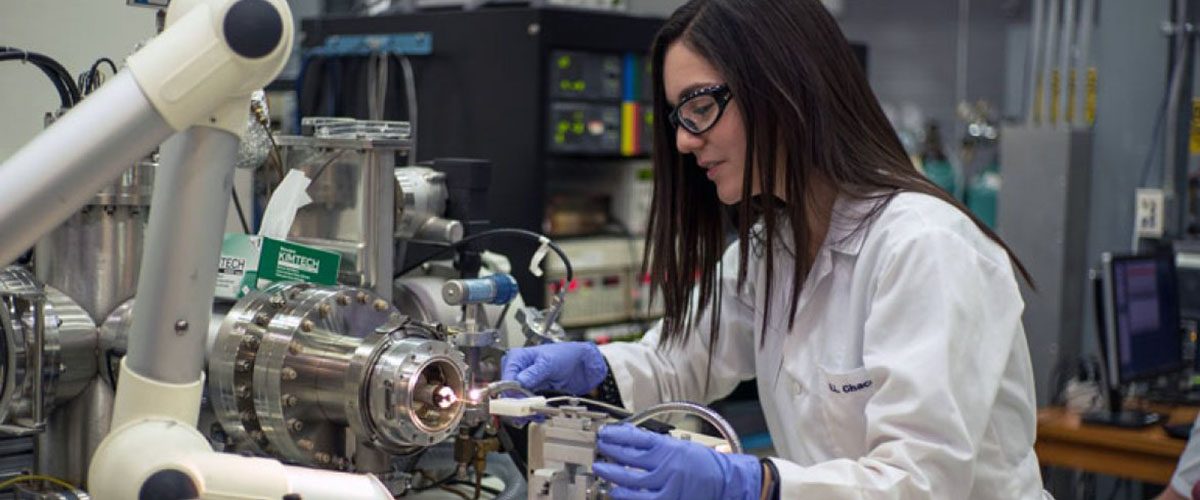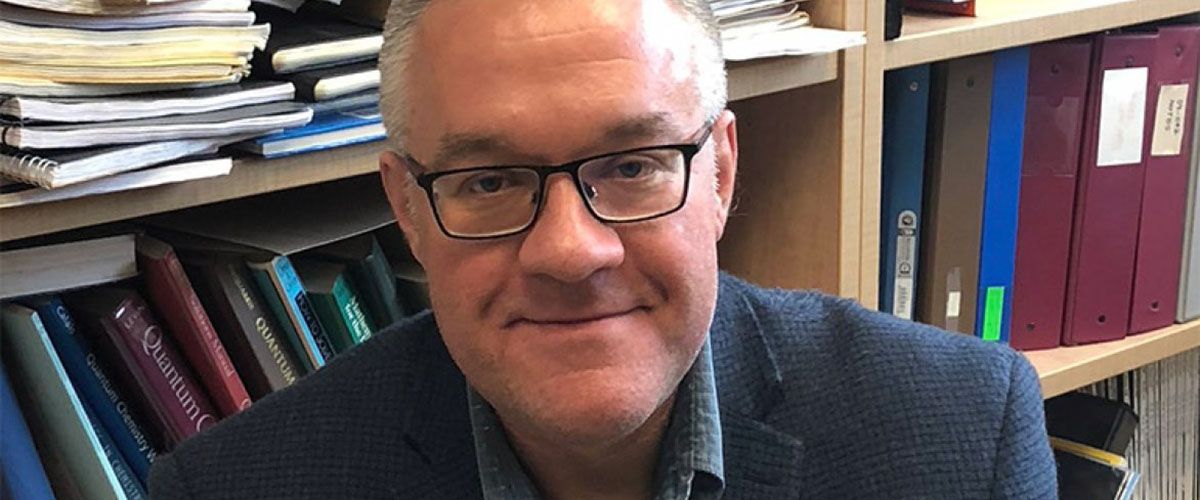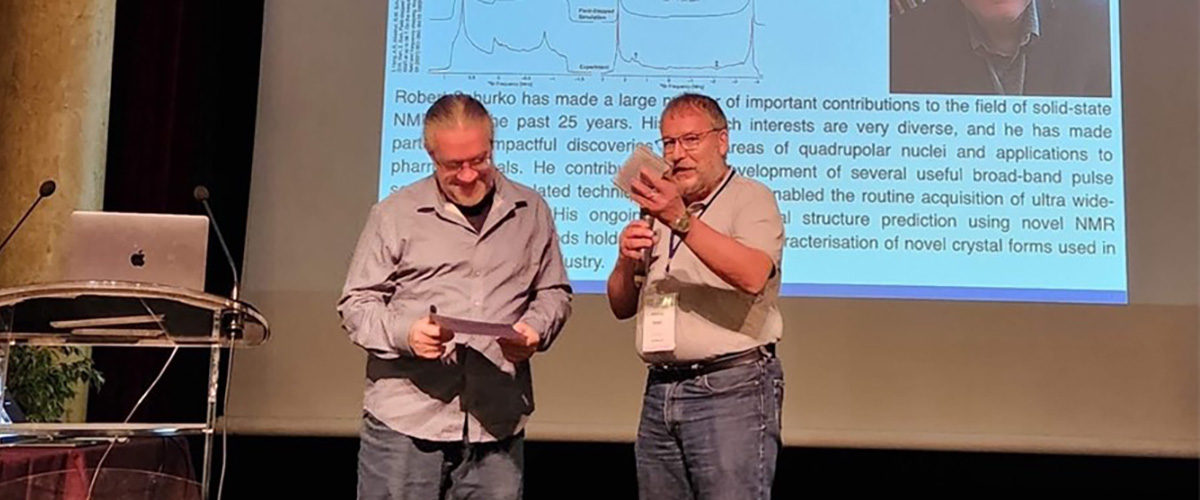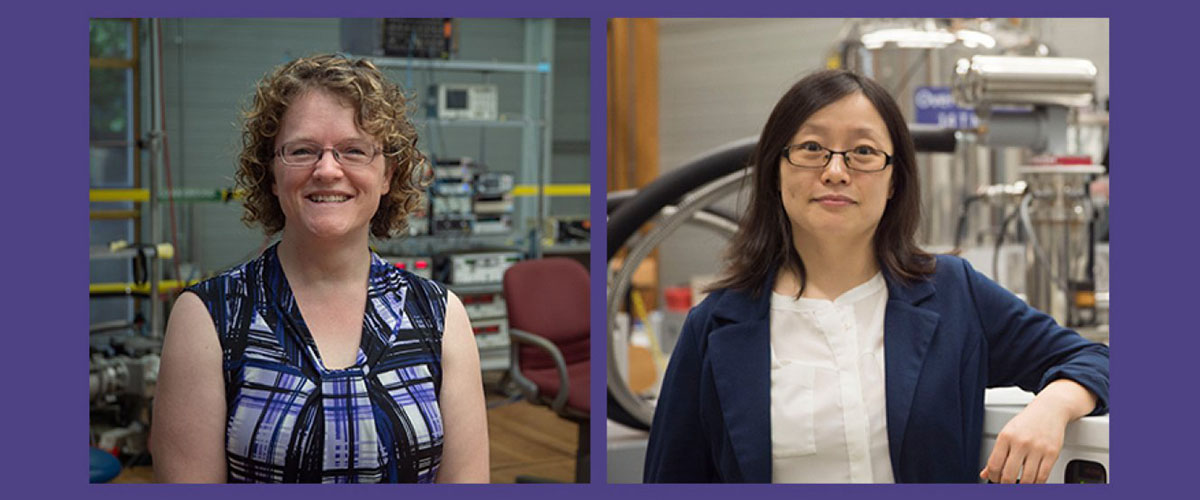Contact: Kristin Roberts
TALLAHASSEE, Fla. — Martha Chacón-Patiño, a postdoctoral associate at the National MagLab, has received the prestigious American Society for Mass Spectrometry Postdoctoral Career Development Award this week at the 66th ASMS annual conference in San Diego, Calif.
A chemist in the lab’s Ion Cyclotron Resonance Facility, Chacón-Patiño plans to use most of the $10,000 to fund a short internship later this year in the research group of Professor Livia Eberlin at the University of Texas at Austin. She hopes the experience will build ties between Eberlin’s Group, who develops mass spectrometry applications related to health, and the MagLab’s ICR group, which offers scientists the strongest, most advanced instruments for FT-ICR mass spec in the world.
Eberlin's Group has invented something called a "MasSpec pen," a handheld device surgeons could one day use to detect whether tissue in the body is cancerous or not. Chacón-Patiño’s studies petroleum — the most complex naturally occurring mixture in the world — not cancer. But a mass spec technique Eberlin uses to determine if human tissue is cancerous, called ambient ionization, could potentially have significant applications for Chacón-Patiño's field, she said.
Before it can be analyzed in a mass spectrometer, a substance must first be vaporized and ionized (given a positive or negative charge). In most ionization techniques (like those used to study crude oil at the MagLab), the material is heated up and/or bombarded with photons, electrons or reactive gas, potentially altering some of the molecules. But ambient ionization takes place at room temperature and requires little to no sample pretreatment.
"That is the main advantage: that you can guarantee the stability of molecules," said Chacón-Patiño, who hopes that MagLab scientists can use the technique to understand the chemistry behind petroleum behavior. "By using a variant of ambient ionization, called desorption electrospray ionization, we could create molecular images from petroleum samples after their fractionation on chromatographic plates. Those images would help us to understand chemistry properties critical for petroleum refining, transportation, and its impact on environment."
The cross-fertilization between the two labs is very promising, said ICR Facility Director Chris Hendrickson.
"Martha's proposal is clever and could have a major impact on our understanding of emulsions, deposits and petroleum’s environmental toxicity," Hendrickson said.
But Eberlin should have as much to gain from the new relationship as the MagLab, said Chacón-Patiño, including access to world-record ICR magnets and new ideas on how they can further her health research.
"We would like to test the high-resolution mass spectrometers we have here, like the 21-tesla, to see if we can improve her methods," Chacón-Patiño said.
As part of the award, Chacón-Patiño will be giving a talk at the ASMS on her research, one of six presentations by MagLab chemists featured at the conference, the most ever.
"It speaks to the quality and breadth of the work that we do in the facility," Hendrickson said.
Story by Kristen Coyne






